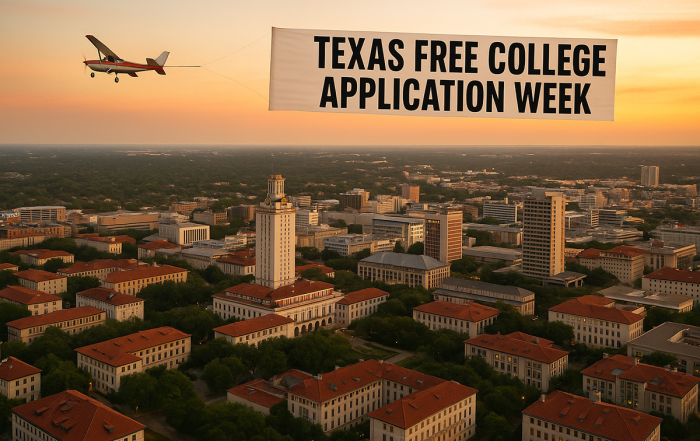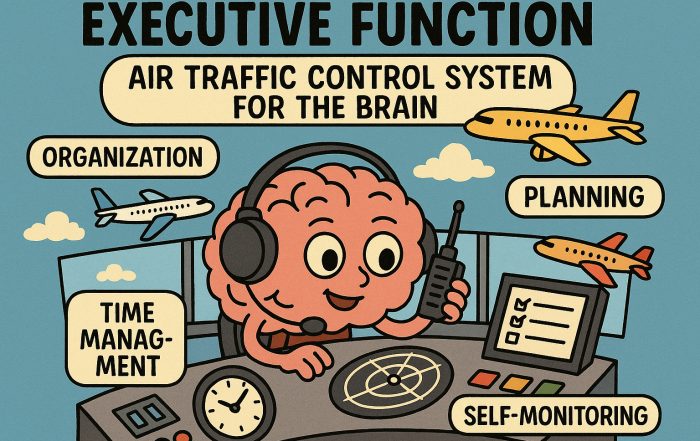Private In-Home Tutoring
For the utmost convenience, let our tutors come to your home. We drive to most homes within a 10-miles radius of our Rice Village office including West University, Bellaire, River Oaks, Galleria, Memorial, Heights, and Montrose.
Types of Private Tutoring
Private In-Office Tutoring
At nearly 9,000 square feet of chic, loft-style space, our Study Lounge near the Rice Village is large and impressive. Tutors are able to meet with students at any time including nights and weekends. Our unique space includes:
- 50+ Private Tutoring Tables
- 6 Classrooms
- Fully Enclosed Courtyard
- Full Size Kitchen
- Dining Area
Brilliant Tutors
Not all tutors are created equally, and our team is among the very best:
- 100% of our team scored in the top 5% on the SAT or ACT
- 40% are current Rice undergraduates, graduates, or affiliated
- 25% hold or are pursuing a graduate degree
- 5 years average tutoring and teaching experience
- W2 employees, background checked, and continuously trained
Click here to learn more about our brilliant and charismatic tutors.
Supported Subjects
- Math – Pre-Algebra, Algebra I, Algebra II, Trigonometry, Pre-Calculus, Calculus
- Science – Biology, Chemistry, Ecology, Physics
- English – Essay Writing, AP Literature, AP Writing and Composition
- History – AP European History, AP Human Geography, AP World History
- Languages – Spanish, Mandarin Chinese, French, Latin
- Computer Science
- Ask Us!
Houston Private Tutoring FAQs
Students should start their test prep by taking both a mock ACT and digital SAT. The student’s performance and comfort on that diagnostic exam will then guide their choice of which test to ultimately prepare for the most—but preparing for one test also prepares them for the other.
Whether your child should take the SAT or the ACT is purely a matter of preference. With about 1.3 million students taking either tests every year, both are equally accepted nationwide. The SAT is more popular in Houston just because of historical preference, and Houston ISD pays for every junior to take the SAT because College Board won the contract (conversely ACT won the contract in North Carolina for example). Click here to see which state governments sold out to College Board (SAT) and which ones got bought by ACT.
Both the Digital SAT (2024) and Enhanced ACT (2025) are relatively new and an hour shorter than the versions parents took. Furthermore:
- Digital SAT passages are only a few sentences versus more than 700 words for the ACT.
- The Enhanced ACT is offered both online and in paper
Students are generally able to take the ISEE twice during the application cycle. In Houston, we recommend that students take the ISEE in mid-November and again in early January (if they were unhappy with their first attempt).
Students generally take the test either at their current school (for terminal middle schools) or at the school to which they’re applying.
Registration opens August 1st and does fill up, so parents should register as early as possible.
Click here to see the 2025-2026 ISEE test dates and locations in Houston.
While it’s impossible for us to guarantee specific improvements given every student’s unique situation, our research shows that the average General Academic student improves by 2 stanines or up to 30 percentile ranks.
Click here to read our analysis about student score improvement.
For the 2025-2026 academic year, the average Houston private school costs $27,952, which was up 4% from the previous year. Catholic schools were generally 20% cheaper.
Click here to read our annual analysis of Houston-area private school tuition.
We could debate this topic ad nauseam! Some Houston private schools like St. John’s, Awty, and Kinkaid routinely boast of an exceptional number of students who score in the top 1% on the PSAT. However, ultimately the definition of “best” is different for each family, and indeed each child.
Click here to read our analysis of PSAT National Merit Semifinalists by school.
Taking a full-length mock test under timed conditions is one of the best ways to predict how your child will perform on the actual exam; it also helps them build the mental toughness necessary to perform reliably on test day.
There’s a big difference between working 10, untimed questions at the kitchen table with the aid of a tutor versus slogging through 161 unassisted questions in a room with other kids all at the same time.
We offer complimentary diagnostic mock testing for ISEE, ACT, and SAT to both current and future clients. For current clients, we also offer ongoing mock testing when our guidelines for properly spacing out practice tests is followed.
Ideally, students will complete at least 3 full-length practice tests before they take the ISEE, SAT, or ACT exam. However, parents should be careful not to force students to take mock tests in quick succession without sufficient studying.
We expect students to complete a minimum of 20 hours of tutoring and self-study between each mock test. Forgoing this recommendation risks demoralizing students and/or being disappointed by lack of perceived improvement.
Students working with us have access to more than 12 full-length practice tests.
General Academic employs more than 70 private tutors in the Houston area at any given time. These brilliant tutors can meet with families in-home, online, or at our offices in Rice Village (central Houston / West University) or Hedwig Village (west Houston / Memorial).
No matter where you meet with your tutor, our hiring criteria, training procedures, and ongoing support are the same.
Our busiest period is during the fall when demand is high for both standardized test prep and subject prep. We encourage families to book well in advance during these time periods in order to secure their preferred tutor, location, and timing.
The process to request and get started with a General Academic private tutor is easy and fast:
- Schedule a free consultation to discuss your family’s needs and/or submit a request
- Confirm your preferred location, tutor, and schedule
- Start meeting
That’s it! New clients can usually get started with a tutor in as little as two business days.
Need help tonight? Book our Rice Village Study Lounge.
Send test scores to test-optional schools when they enhance your application – typically at or above the school’s median. Otherwise, withhold and bolster essays, grades, and course rigor.
File an appeal with updated documentation such as job-loss notices or medical bills. Most colleges will re-evaluate need-based aid.
Attend virtual sessions, visit campus, email regional reps, and reference specific programs in your supplements.
Revisit campuses (ideally, in-person), compare financial aid, talk with current/former students, and—above all—trust your gut.
The biggest essay mistake is having generic answers (e.g., “I’ve always loved science”) or listing achievements without reflection.
There is nothing wrong with seeking help for essay editing, but the “voice” of the essay must be authentically yours. Avoid over-polishing—admissions officers spot inauthenticity.
They’re rarely decisive but can provide context. Treat them as conversations, not interrogations.
Authenticity! Share a specific story that reveals your values, growth, or perspective.
The optimal size of college depends on your goals: small = personalized attention; large = more resources/networks.
Most colleges don’t require declaring until sophomore year, but your stated major on your application should fit your sales pitch.
Yes! Politely appeal with competing offers or new financial circumstances.
Submit the FAFSA and/or CSS Profile. Aid is based on need (grants, loans) and merit (scholarships).
Yes! Colleges can rescind offers if grades drop significantly.
No, but they show rigor. Focus on excelling in courses available to you.
Yes, most colleges and universities absolutely care about demonstrated interest. There are multiple ways to demonstrate interest: attend virtual tours (virtual or in-person), email admissions reps, or engage on social media to show enthusiasm. If you are deferred or waitlisted, consider sending a Letter of Continued Interest.
Yes and no. You can reuse parts of essays or follow similar outlines, but you should always tailor them to each school’s prompts and values. Never mention the wrong college in an essay!
– ED: Binding commitment if accepted (apply to 1 school).
– EA: Non-binding early application (multiple schools).
– RD: Standard deadline (no restrictions).
Start exploring interests and building strong academic habits early (even in 9th grade), but formal application prep (essays, resumes, etc.) begins in junior year.
In response to the new Digital SAT test rolled out in 2024, competitor ACT also announced that they would overhaul their exam beginning as early as spring 2025. The updated ACT test is shorter (2 hours) and makes the dreaded Science Test optional. Scoring remains on a scale of 1-36, and the test will differentiate itself from the Digital SAT in that it will be offered on both paper and computer.
All of our billing is post-paid for services rendered in the previous month. As such, all students must have a pre-established relationship with us before self-registering for either the Study Lounge or Study Space. Tutors are not equipped to handle payments. Click here for more information about our rates and policies.
All Study Lounge or Study Space participants must have an existing relationship with us. Prior to students being allowed to self-register, parents must have previously met with one of our managers and established a billing account.
No, the fee for the Study Space is the same regardless of when your child checks-in and checks-out. However, we do offer a discounted rate of $35 for students who attend the Study Space on the same day they meet with their private tutor in-office.
Study Space does not provide access to our tutors beyond checking in and checking out. It only provides access to our facilities and amenities.
No, the fee for the Study Lounge is the same regardless of when your child checks-in and checks-out. We recommend that your child stay for as much of that 4-hour window as possible, but they are welcome to arrive and leave at their convenience.
We limit the number of students to maintain our Study Lounge 4 student to 1 tutor ratio; therefore, appointments are strongly recommended and can be made on this website. Students without reservations will be turned away if we have reached our capacity.
Yes, each student sits at their own table, and tutors walk between the students helping each child individually on whatever it is they’re working. Assuming the Study Lounge is fully booked at a 4 student to 1 tutor ratio, each student can expect 30 minutes of 1-to-1 time with the tutor.
The shared tutoring environment in the Study Lounge will generally not exceed a 4 student to 1 tutor ratio; however, depending on time of day, there may be even fewer students!
Study Lounge tutors are capable in helping students through advanced mathematics (AP Calculus), advanced science (AP Physics, Biology, Chemistry), humanities, and social sciences. We cannot guarantee support for foreign languages outside of Spanish. Tutors are also qualified to assist with standardized test prep for ACT, SAT, and ISEE.
Most General Academic high school juniors will take the ACT or SAT two or three times to ensure they earn the score they need. There is no penalty for taking the test multiple times, and colleges only care about the highest score.
Note that most juniors will also take the PSAT in October for National Merit Scholarship qualification.
The SAT is generally offered to Houston-area students eight times a year:
- August
- October
- November
- December
- March
- April (all Houston ISD juniors in-class, automatically registered and paid)
- May
- June
Students need to register online at CollegeBoard.org at least four weeks in advance to avoid late-registration penalties and ensure availability. Most General Academic students will take the SAT in November, March, and May of their junior year.
The ACT is generally offered nationally seven times a year:
- September
- October
- December
- February
- April
- June
- July
Students need to reegister online at ACT.org at least five weeks in advance to avoid late-registration penalties and ensure availability. Most General Academic students will take the ACT in October, February, and April of their junior year.
General Academic recommends that rising high school juniors start preparing for the ACT and/or SAT in the summer (June/July) in the lead up to the fall test dates (August/ November). This timeline allows the student to work around particularly stressful periods like mid-term and final exams. It provides ample time to prepare not only for the first, fall test date but also a second or third testing in the spring of their junior year.
Ultimately, the goal is to have the student finished with their testing by the May test date as a sanity check and to leave the summer period open for their college applications and essays. However, the student will still have plenty of opportunities for more testing in June, August, October (latest for early decision), and November (recommended latest for regular decision), but this would be on top of their applications and regular schoolwork in the fall of their senior year.
The most valuable resource in test preparation is time. The most difficult math topics tested on the SAT and ACT are Algebra II and some trigonometry, which most students will have already learned by the start of their junior year. Therefore, in order to avoid regretting not having started early enough, the summer before junior year is the best time to start.
With that said, “test prep burnout” is a very real phenomena. Parents should avoid cramming too much test prep into an especially tight or stressful period of time, and they should accept if students are already scoring at their peak ability.
The genuinely not-waffling answer is that every student is different. How long your child needs to spend preparing depends primarily on:
- What score do they want to achieve?
- What score do they have right now?
- How big is the gap between their goal and current scores?
However, the overly simplified answer is:
- For the SAT, students can expect about a 40-point improvement for every 7 hours of quality preparation
- For the ACT, students can expect about a 1-point improvement for every 7 hours of quality preparation
The operative word in this basic response is “quality.” Students cannot spend those 7-hours just watching videos on Khan Academy while simultaneously posting to Tik Tok. They need to be actively engaged in the material, taking practice tests, and truly learning from their mistakes.
The majority of the time spent on test prep is remediating basic math and English skills. No amount of tips, tricks, or talking-head watching will make up for not being able to actually identify the main idea of a paragraph or manipulate fractions.
The shorter answer is that students who have the means and time to prepare and take the ACT or SAT should absolutely do so.
Colleges like standardized tests because they’re norm-referenced and their scores are comparable across the entire US population regardless of school and curriculum. However, the uncomfortable outcome of testing is results. And historically standardized testing shows enormous performance gaps between students from different socioeconomic backgrounds.
It’s this measured gap between students of different backgrounds that largely propels the test-optional movement. Furthermore, the COVID-19 pandemic led to additional challenges like simply not being able to get students in a room to test. As a result, colleges raced to go test-optional, and some university systems like the state of California even went test-blind in 2022.
While colleges are reluctant to publish their admissions data, since-redacted statistics from the pandemic and off-the-cuff remarks from admissions officers, demonstrated that students who submitted scores were often twice as likely to gain admission. The basic premise is that only students with something to hide didn’t submit scores.
But why did that happen even when it was the colleges’ policy to be “test-optional” and technically not penalize students who didn’t submit scores? There’s at least two reasons—submitting strong scores is another, positive data point, and admissions officers are still human. Would a car buyer rather choose the model that got “sufficient gas mileage” or the one that gets “50 miles per gallon” or “400 miles of range”?
Furthermore even less well-off students can reap huge rewards from submitting high test scores. For example, a low-income high school student is more able to ace the ACT or SAT than attend a rich, academically competitive school, participate in a bevy of after-school activities, and spend hundreds of hours on unpaid, volunteer work.
Click here to read more about our analysis of test-optional admissions.
Most students succeed with 8 – 12 well-researched schools: 2 – 3 safeties, 3 – 5 matches, and 2 – 3 reaches. Highly accomplished students might consider applying to a higher proportion of reach schools, but every student should balance out their list with colleges of varied selectivity.
Every high school has a different way of calculating grades, which makes it difficult to use GPA as a metric for college admissions. Some colleges provide aggregate GPA data for recently admitted students, but this is nowhere near as widely available as test score data.
Some colleges standardize GPA themselves through a recalculation process, which can provide a clearer point of comparison for students. Others focus on holistic review of student transcripts, with an emphasis of rigor of curriculum – that is, they primarily care about which courses your student took, how challenging those courses are relative to what was available to them, and what grade is next to each course on the transcript.
Many colleges switched to a test-optional policy with the onset of COVID-19. However, some colleges (including MIT) have switched back to a test-required policy, so we’d recommend checking the requirements of each university on your college list. On the opposite end of the spectrum, a handful of colleges have committed to a test-blind policy (including the University of California system), meaning that they are removing test scores from consideration entirely.
In general, we do recommend preparing for either the SAT or ACT, even if many of your student’s target colleges are test-optional. If a student can achieve a score that falls near or above the median for typical students admitted to any given college, then submitting scores will only serve to benefit them. Your student can also always choose to submit their score to some schools and withhold them from others.
Generally speaking, colleges do not make value judgments about the extracurricular activities a student chooses to pursue. They do, however, value quality over quantity; they look for students who commit to particular activities for the long-term and rise to leadership roles within them.
Ideally, your student’s extracurriculars should reflect their genuine interests and passions. If they sincerely enjoy a particular activity, they’ll have a better time working hard to improve themselves, achieve awards, and maybe earn leadership positions. Extracurriculars are also a great way for students to explore new interests that may grow into passions – or even career paths.
College admissions officers assess applications holistically, meaning they evaluate the “whole” student. No factor (including grades, test scores, or extracurriculars) is considered in a vacuum; rather, these pieces are all assessed in the context of each student’s unique background.
With that being said, a student’s academic record (including their grades and course selections) tend to be the most important part of each application. College vary in terms of which factors they consider and how they weigh them; most colleges provide insight into these factors on their Common Data Set document (try searching the web for “[College Name] + Common Data Set”).
As the fourth largest public school district in the United States, Houston is fortunate to offer some exceptional public schools.
Our research shows that elementary school desirability and performance are directly related to the wealth of the surrounding neighborhood. Therefore top schools inside the city include River Oaks, West University, Horn (Bellaire), Poe (Southampton), and Roberts (University Place).
At the high school level, Houston’s best public schools are application-only magnet schools like Carnegie Vanguard, DeBakey, and the High School for the Performing and Visual Arts.
Click here to read our analysis of Houston’s magnet school lottery.
About half of General Academic’s more than 300 ISEE students start preparing by the end of August. When preparing for a standardized test, the most important tools are a diagnostic test and time. Students need to know where they are and how far they need to go to meet their goals.
Click here to read our analysis about when when Houston students start preparing for the ISEE.
The ISEE is a peer-normed test graded along a normal curve, which is split into 9, evenly divided sections. Scores of 4, 5, and 6 are average while scores of 7, 8, and 9 are highest. A 1 approximately represents the bottom 3% of test-takers while a 9 represents the top 3% of test-takers.
In Houston, students applying to the most academically rigorous private schools like St. John’s, Awty International, Kinkaid, Strake Jesuit, St. Agnes or Annunciation Orthodox tend to have the best chances of admission with scores of 7 or higher.
Larger private schools with a more academically diverse population like Episcopal, Houston Christian, or St. Pius are more welcoming of average scores of 5 and 6.
Yes, parents may cancel their child’s enrollment in the Early Guidance and Counseling Program at anytime, and we will provide a pro-rated refund.
No, the Early Guidance and Counseling Program package includes up to 6, 1-hour, semesterly counseling sessions. Additional services including academic tutoring, test preparation, and college applications and essay support are available separately. However, the package does credit back 50% of fees paid beginning in 11th grade towards ACT and SAT test prep and/or college applications and essay support.
This program is best used when starting the summer before 9th grade or in the fall of 9th grade; however, we will also accept students as late as the summer before 10th grade. The fees and credits will be pro-rated accordingly.
The difference is in the timing and scope. The Early Guidance and Counseling Program (EGCP) is specifically for students entering 9th or 10th grades and leads up to college applications but does not include support specifically geared towards ACT and SAT test preparation or completing college applications. However, half of the EGCP fee is rebated to families toward use of these services beginning in 11th grade.
We recommend that your child first meet with one of our guidance and college counselors during the summer before their 9th grade year or in the fall of their 9th grade year.
The average public high school has just one school counselor per 455 students. Prestigious private schools in Houston are significantly better but at approximately 1 college counselor per 150 counselees, far from ideal.
Furthermore a school counselor has multiple masters and priorities including their district, principal, and other parents. At General Academic you and your student are our only priority. We provide you with honest, third party advice that is tailored just for you and your child.
Yes, when parents ask this question they’re usually referring to study skills including:
- Organization
- Time Management
- Planning
- Note-taking
- Communication
Because every child is unique, our tutors generally find success by helping the student develop and refine the systems that work best for them.
For example, we do not simply hand students a planner and say, “use this,” rather we review different options like Google Calendar, Apple Reminders, and help the student refine the right mix of tools that works for them.
For more learned skills like note-taking and communication, tutors generally leverage the student’s existing coursework to identify current weaknesses and propose corrective measures. Even during summer when there is limited coursework, our tutors can develop personalized assignments to improve note-taking skills.
Click here to read more about what executive function skills are and students can improve it.
Less than 10% of the top 1% of US college undergraduates and graduates meet our rigorous tutor qualifications. We actively recruit the most brilliant and charismatic would-be tutors.
- We start by recruiting brilliant individuals with proven academic records—very high test scores and grades.
- Then we ensure that these would-be tutors are able to help in a broad range of upper level subjects including advanced math and science.
- We continuously train and support our tutors with experienced managers, superb teaching content, and advanced software.
All of our in-home and in-office private tutors are background checked and insured, W2 employees. Click here to learn more about our brilliant peer and pro tutors.
For private tutoring our rates depend on the:
- subject matter (1st grade reading vs MCAT test prep),
- experience level of the tutor (Rice undergraduate vs NASA engineer), and
- location (in-office vs 10 miles away).
Our post-paid, hourly rates start at $80 per hour. Click here for more details.
When helping students improve their grades in school, out tutors and managers like to have access to the student’s online school portal to see grades and assignments.
For enrichment or test prep, tutors use a combination of official materials (i.e. College Board’s Official SAT Practice Tests) plus our original content published at Piqosity.com.
Most students meet with a tutor 1 to 2 times per week for 1 to 1.5 hours per week; however, every student’s goals and needs are different—
For maintaining current grades, getting ahead, or preparing for a standardized test, students generally meet with a tutor one to two times per week for 1 to 2 hours.
For remediating poor grades across multiple subjects, students generally meet with a tutor for 2-3 times a week for 1.5 to 2 hours.
Our Latest News and Analysis
Spring Branch ISD’s Best Elementary and Middle Schools by STAAR Scores 2025
Many Houstonians have a Houston zip code but aren't part of the Houston Independent School District (HISD). Spring Branch (SBISD) [...]
What is Texas Free College Application Week and Why Does It Matter?
The first ever Texas Free College Application Week is October 13-19, 2025. During this week all Texas public colleges, including [...]
Houston ISD’s Best Elementary and Middle Schools by STAAR Scores 2025
T.H. Rogers continues its reign as Houston Independent School District (HISD)'s best elementary and middle school by Texas STAAR test [...]
What is Executive Function and How Students Can Improve It
Executive functions are the suite of cognitive abilities that allows students to plan, focus, manage tasks, and regulate behaviors. Developing [...]






